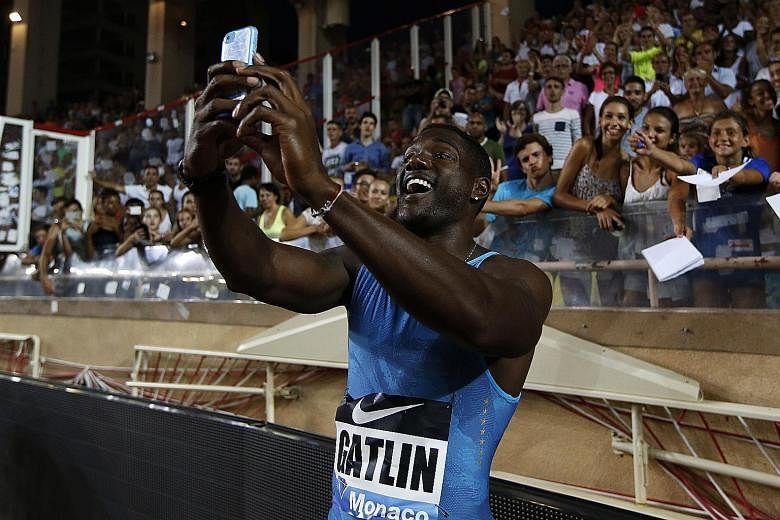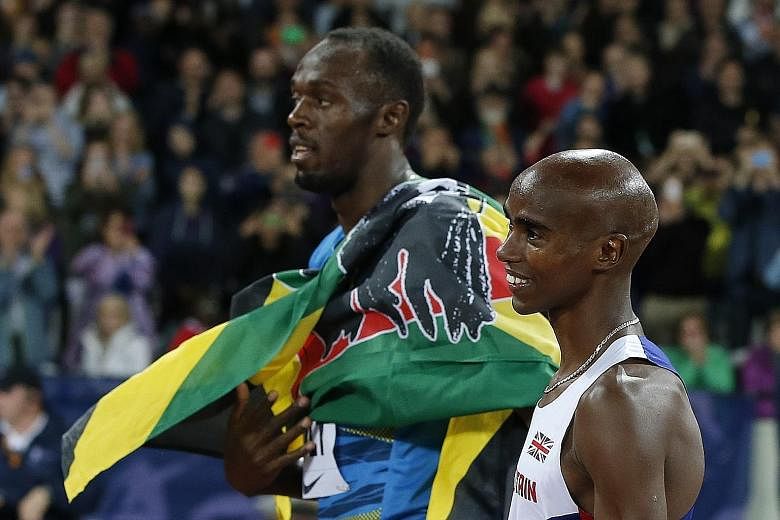LONDON • The world of athletics was rocked yesterday by allegations that a third of the medals for endurance events at Olympics and world championships between 2001 and 2012 were won by athletes who had recorded suspicious drug tests.
Britain's Sunday Times and German broadcaster ARD/WDR had been given access to a database containing more than 12,000 blood tests from 5,000 athletes, who included many household names from across the world.
The data, which was kept at the Monaco headquarters of the International Association of Athletics Federations (IAAF), was reportedly released by a whistle-blower.
The tests showed more than 800 athletes had given blood samples that were "highly suggestive" of doping or "abnormal", reported the BBC, which added that it had also seen the documents.
It also revealed that as many as 55 gold medals for the Olympics and world championships had been awarded to athletes with suspicious results.
Ten of those golds were believed to have been handed out to athletes at the London Olympics in 2012.
However, 5,000m and 10,000m champion Mo Farah - whose coach Alberto Salazar was recently accused of violating anti-doping rules - is not among them.
Six-time Olympic sprint cham-pion Usain Bolt is also understood to be clean.
Leading anti-doping experts Michael Ashenden and Robin Parisotto had reviewed the files.
They said the data provided compelling evidence that the IAAF had failed to take sufficient action against athletes with highly suspicious tests. Almost 70 athletes escaped without proper scrutiny even after new measures were introduced to crack down on cheating competitors in 2009.
According to Britain's Sunday Times, the IAAF had threatened to take out an injunction preventing the newspaper from publishing what is believed to be the biggest leak of blood test data in history. But the organisation dropped the action last Friday, and a spokesman said it had "systematically pursued" doping test results flagged as "atypical".
On Saturday, ARD broadcast a documentary named Doping - Top Secret: The Shadowy World Of Athletics, with a series of new accusations aimed at Russian and Kenyan athletes.
ARD, which last December aired similar accusations of doping in Russia, returned to the controversy three weeks before the world championships in Beijing.
The makers of the film claim to have evidence of human growth hormone being used by Russian runners. They also say that a hidden camera recorded 800m athlete Anastasia Bazdireva praising the benefits of drugs.
IAAF president Lamine Diack offered no reaction yesterday. But the World Anti-Doping Agency (Wada) said it was alarmed by the extent of the allegations.
"These are wild allegations, wide allegations, and we will check them out, and have that done with the commission as quickly as possible," Wada chief and International Olympic Committee vice-president Craig Reedie told reporters in Malaysia.
The disclosures come as the IAAF is preparing to elect a new president in two weeks, with Britain's Sebastian Coe standing against former Ukrainian pole-vaulting star Sergey Bubka.
Russian Sports Minister Vitaly Mutko said yesterday that an IAAF power struggle was behind the new doping allegations, which he dismissed as "nonsense".
THE TIMES, LONDON, REUTERS, AGENCE FRANCE-PRESSE


